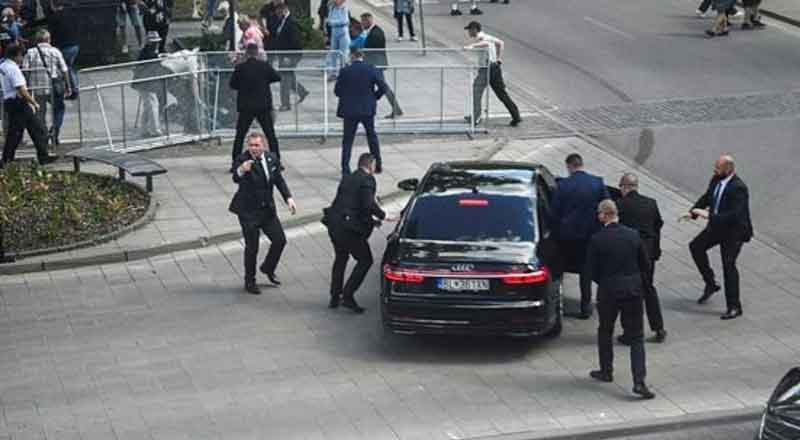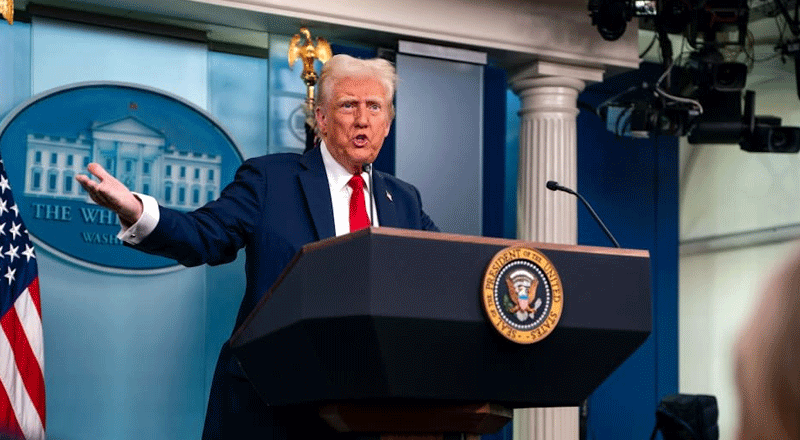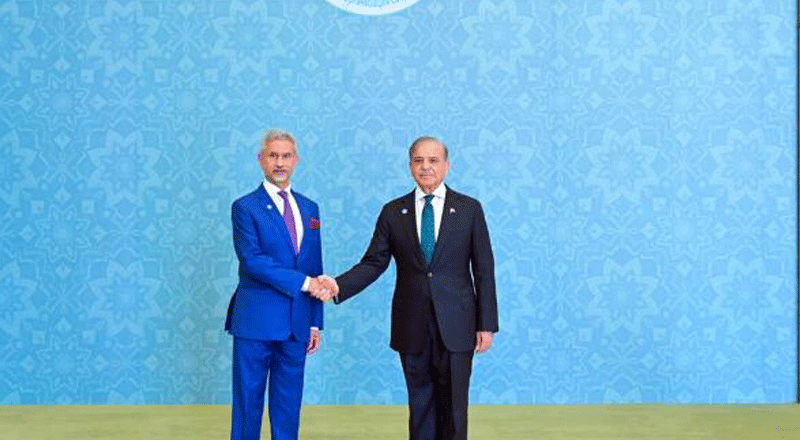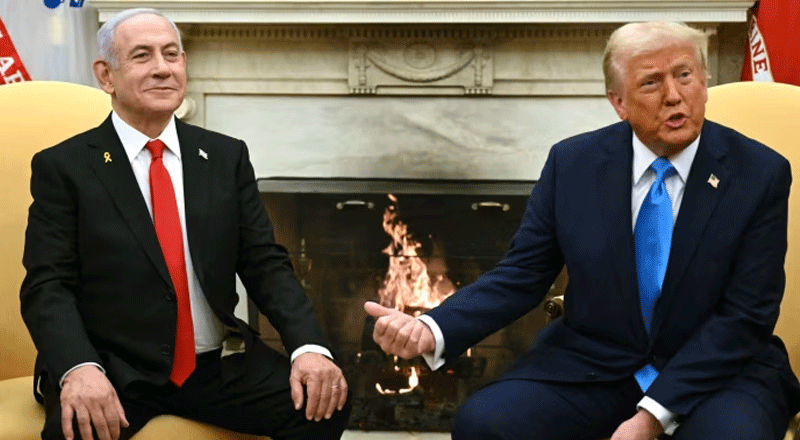- Slovak Prime Minister Robert Fico was shot multiple times after a cabinet meeting in the central town of Handlova.
- a 71-year-old assailant allegedly carried out the brazen shooting, prompting swift apprehension by authorities.
- The former Communist Party member took power for the fourth time last October and has turned the country’s foreign policy towards more pro-Russian views.
- Expressing profound dismay and solidarity, PM Modi strongly condemned this cowardly and dastardly act and wished PM Fico a speedy recovery.
- Russian President Vladimir Putin, US President Joe Biden, and NATO Secretary-General Jens Stoltenberg were among those who voiced their shock and repudiation.
- European Commission President Ursula von der Leyen minced no words in labeling it a “vile attack,” underscoring the gravity of the situation.
In a startling turn of events that sent shockwaves across the globe, Slovak Prime Minister Robert Fico found himself the target of an assassination attempt, drawing widespread condemnation and expressions of solidarity from leaders worldwide. Indian Prime Minister Narendra Modi joined the chorus of voices denouncing the “cowardly and dastardly” act while conveying heartfelt wishes for Fico’s swift and full recovery.
The incident unfolded in the tranquil confines of the central Slovak town of Handlova, where a 71-year-old assailant allegedly carried out the brazen shooting, prompting swift apprehension by authorities. Fico, aged 59, sustained grave injuries in the attack and underwent immediate surgery. Reports emanating from the medical team indicate that while he remains in stable condition, the extent of his injuries is severe and requires vigilant monitoring.
Expressing profound dismay and solidarity, PM Modi remarked, “Deeply shocked at the news of the shooting at Slovakia’s Prime Minister, HE Mr. Robert Fico. I strongly condemn this cowardly and dastardly act and wish PM Fico a speedy recovery. India stands in solidarity with the people of the Slovak Republic.”
The ramifications of the assault resonated far beyond Slovakia’s borders, eliciting swift and unequivocal condemnation from world leaders. Russian President Vladimir Putin, US President Joe Biden, and NATO Secretary-General Jens Stoltenberg were among those who voiced their shock and repudiation. European Commission President Ursula von der Leyen minced no words in labeling it a “vile attack,” underscoring the gravity of the situation.
Yet, amidst the condemnation lies a sobering recognition of the broader implications of the assault. Slovak President-elect Peter Pellegrini characterized it as “an unprecedented threat to Slovak democracy,” cautioning against the normalization of political violence as a means of ideological expression.
The context surrounding Fico’s tenure adds layers of complexity to the gravity of the situation. As a three-time premier, Fico has navigated Slovakia towards more pro-Russian stances, triggering apprehensions regarding democratic principles and the rule of law. His policies, including the cessation of arms shipments to Ukraine and vocal opposition to Western influence, have sparked both domestic and international debate.
Critics fear a potential divergence from Slovakia’s pro-Western trajectory, drawing parallels to Hungary’s populist drift under Prime Minister Viktor Orbán. Despite mounting dissent and protests, Fico has remained resolute in his pursuit of policies aimed at safeguarding the interests of marginalized segments of society.
Against this tumultuous backdrop, the attempted assassination serves as a stark reminder of the fragility of democratic institutions in an era marked by polarization and political upheaval. The forthcoming European Parliament elections further amplify concerns, highlighting the volatile nature of contemporary European politics.
In the wake of the attack, Ukrainian President Volodymyr Zelenskyy underscored the imperative of preventing violence from becoming normalized in political discourse. Such sentiments echo the broader global consensus on the need for preserving democratic norms and institutions, even in the face of adversity.
As Slovakia grapples with the aftermath of this brazen assault, the international community remains vigilant, mindful of the broader implications for democracy and stability in the region. The solidarity expressed by leaders worldwide serves as a testament to the shared commitment to upholding democratic values and rejecting violence as a means of political expression.
In the face of adversity, the resilience of Slovak democracy will be tested, with the outcome carrying significant ramifications for the future trajectory of the nation and the broader European landscape. As Prime Minister Fico embarks on the arduous road to recovery, the world watches with bated breath, hopeful for his swift recuperation and a renewed commitment to democratic principles.
(With inputs from agencies)





